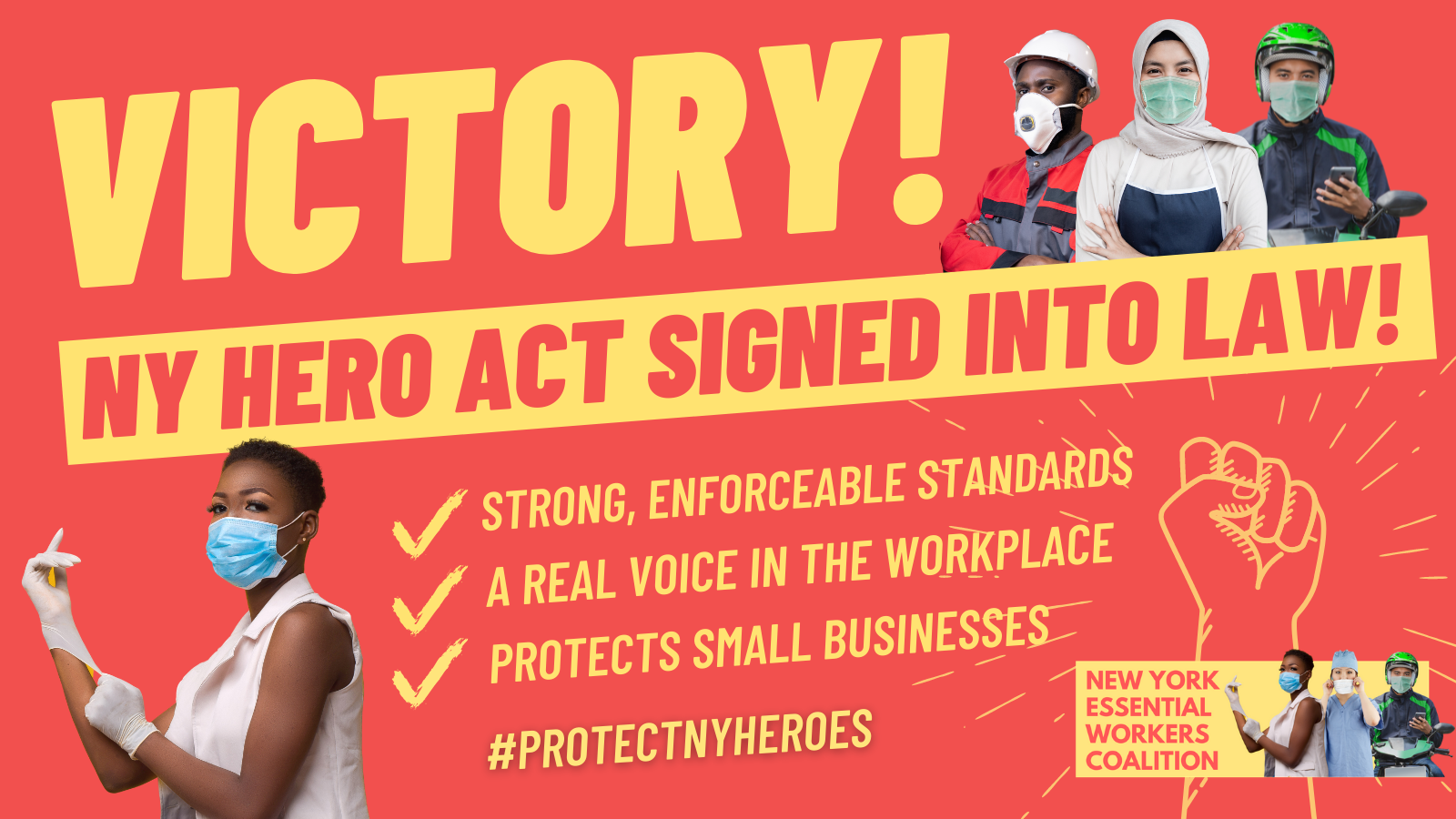

Governor Cuomo has signed the NY HERO Act into law. This is a major step forward for workplace health and safety in New York State.
What does the NY HERO Act do?
The law will create a permanent airborne infectious disease standard and establish enforceable guidelines for workplaces. The HERO Act requires the State Department of Labor to establish industry-specific minimum requirements for preventing exposure to airborne infectious diseases such as COVID-19. These requirements will include standards and requirements for employee health screenings, face coverings, personal protective equipment, hand hygiene, cleaning and disinfecting, social distancing, and compliance with mandatory or precautionary orders of quarantine, as well as
All New York employers, regardless of size, would be required to:
Employers who are unionized will need to develop a plan that includes union representatives; employers who are non-unionized will need to create a plan with “input from their employees.” Employers who fail to adopt a plan would be subject to a penalty of at least $50 per day until a plan is implemented, and employers who fail to comply with an adopted plan could be subject to fines ranging from $1,000 to $10,000.
The HERO Act also gives workers the power to sue their employers if they fail to comply with the standards. It protects workers against retaliation for reporting a violation or for refusing to work if the employee reasonably believes, in good faith, that such work exposes the employee or other workers or the public to an unreasonable risk of exposure to an airborne infectious disease (provided that the employee notified the employer of the employee’s concerns regarding the employer’s failure to comply with the Act and the employer failed to cure or otherwise address those concerns). The Governor and Legislature are currently working out an amendment to clarify when workers would be able to sue their employers and what specific instructions the DOL and employers need to follow when it comes to developing the standards and plans for workplaces.
Under the HERO Act, workers would allowed to establish a joint labor-management workplace safety committees. These committees can be established in both union and non-union workplaces, and at least 2/3 of the committee must consist of non-supervisory employees. Committees will be jointly chaired an employer representative and a non-supervisory employee. These committees can raise health and safety concerns that the employer must respond to; review employer policies related to the HERO Act or Workers’ Comp and give feedback; review workplace health and safety policies; participate in site visits by government inspectors or enforcers; review employer health and safety reports and meet at least one a quarter.
Committee members must also be permitted to attend training associated with their role without loss of pay. Retaliation against committee members is prohibited and punishable by a civil fine of up to $10,000. Committee members who believe that they have suffered retaliation may also assert claims in court, and may recover liquidated damages and attorneys’ fees.